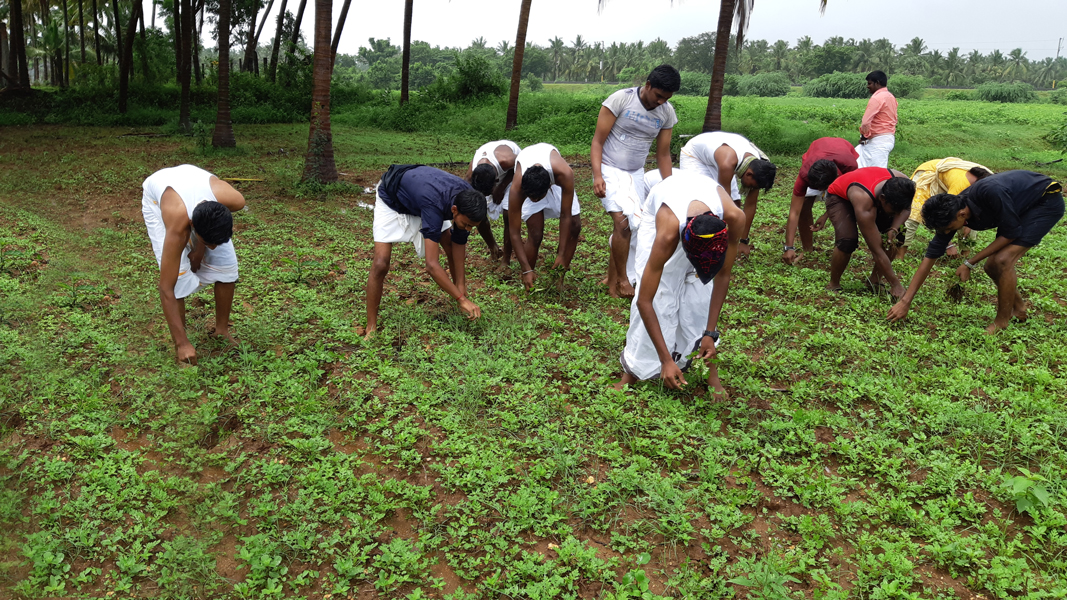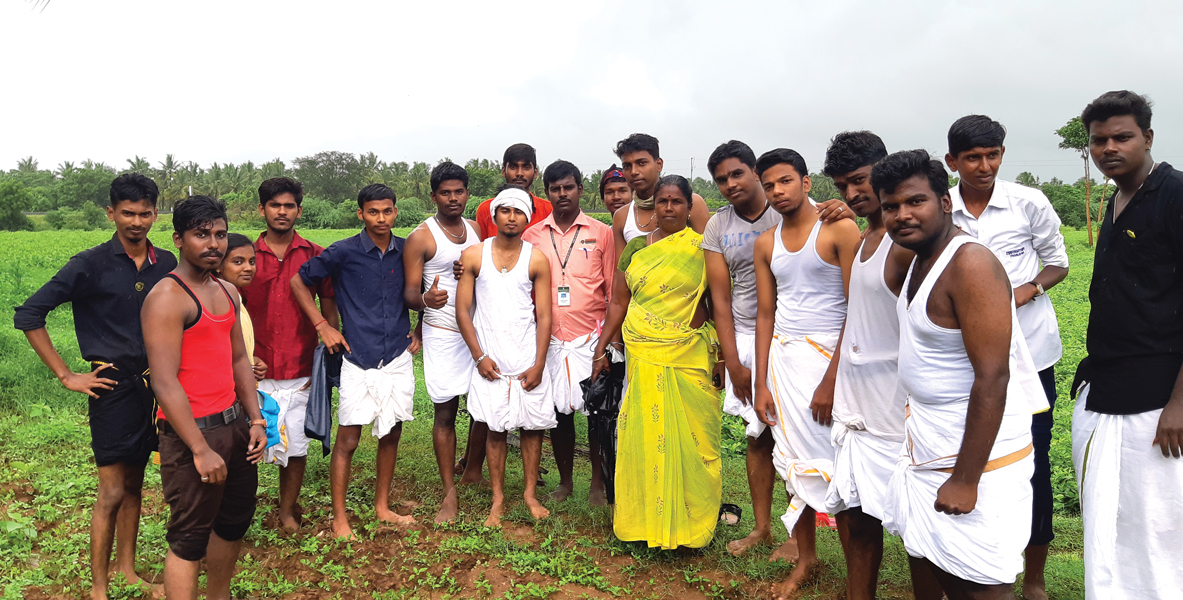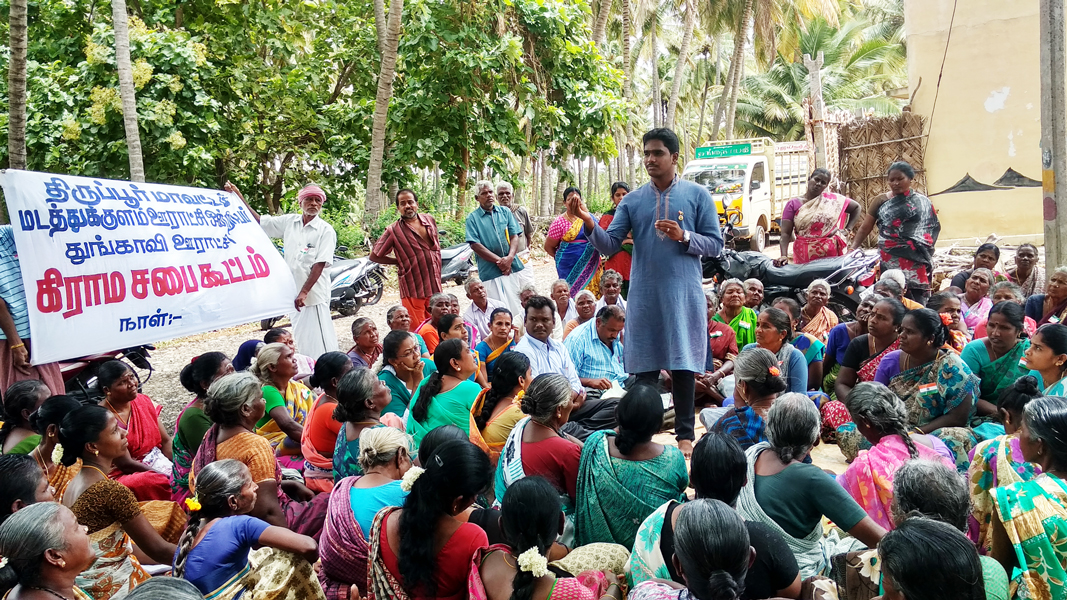Rotaractors’ day out in a farm
We must never waste food. Now I know what struggles a farmer undergoes to cultivate each morsel of the food that we so easily pile up on our plate and just shove it off without any thought once our stomach is full,” says Sateesh, President of RAC Kamalam College, D 3201. This is what he and his team of 22 Rotaractors learnt when they donned the role of farmers for a day recently.

A casual talk about farming among these Rotaractors hailing from places around Pollachi, a suburb town of Coimbatore, led to them packing their bags to Navakarai village in Kerala. “We were visiting a friend who owns a piece of land in the village and when we requested that we work in their farm, his mother happily obliged.”
The youngsters learnt to milk cows, tend to and feed the cattle, take them out for grazing, clean the pen, sow seeds, remove weeds from the fields and plant saplings. “We even dressed up like farmers, changing from pants and shirts to dhotis and mundasu (turban) on our heads that doubles up as a towel to wipe our face as we sweat it out in the fields.”
They got a taste of farm food — a simple yet healthy ragi kanji for breakfast and hand-pounded rice for lunch. “When we uploaded our photos on Instagram and Facebook, we got frantic calls from our friends asking us if we were alright!” laughs Sateesh.

On a serious note, the president said that the farmers face a lot of challenges in their daily lives. While the government had promised them subsidy on electricity bills, it has not benefitted them yet, and no action has come through even after submitting several petitions to the local authorities. They were promised fertilisers at a subsidised rate and crop protection insurance, but none materialised. “We made a short video of this conversation and uploaded it on the social media hoping that some positive action will happen. We have also decided to pool in some funds and our college management has also promised to support the farmers in whatever way possible.”
It was a novel experience for the visitors as they learnt what it is like to be in a huge family. “While in cities, nuclear families are the norm, all of us could feel the warmth and caring so tangible among that 10-member family. There was a kind of closeness and camaraderie which is lacking in our environment where each of the family members are engrossed in their own world of work pressure and mobile phones,” he observes.

Extending this ‘village life project’ the club members created awareness about the significance and power of the gram sabha in another village called Thungavi, close to Coimbatore. A chance talk with one of their college professors ignited this idea in the Rotaractors. “He explained to us about the concept.” The gram sabha is supposed to be a democratic and participatory planning platform to find solutions to villagers’ problems and discuss ways to optimally use the limited local resources. “But often villagers are ignorant about it and we decided to raise awareness about it in the village,” says Sateesh.
While a quorum is mandatory for a decision to be passed at the sabha, it was not practised there. “So we sensitised the villagers about their rights and the procedure to be followed at the gram sabha.” And subsequently when the meet commenced, the tahsildar was taken aback when the locals attending the sabha raised complaints about the roads left unlaid, the unbuilt toilets and water issue in the village.
Sateesh rates this as a valuable project which has helped him and his friends learn and appreciate life. “It has certainly taught us to respect farmers and their services. For after all, we cannot be alive if they do not toil so hard on the fields,” he says.
